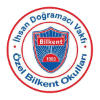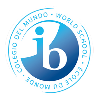Continuous Assessment is required at each level with written exams and oral grades counting towards the final end of term grade. The minimum number of exams per subject is regulated according to the relative weight of the subject. It is possible for students to have to repeat a year if their end of year grade point average (GPA) is lower than 3.0 (out of 5.0). Up until 2013, if students were failing the year, they were allowed to take special end of year exams to increase their GPA in order to pass to the next grade level. Since September 2013 students are expected to pass the year. However, they can still move to the next level with a maximum of three failing grades.
In order to gain a high school diploma students have to have achieved a minimum GPA of 3.0 (out of 5) in their final year, plus a minimum of 50% in each subject area average over the 4 years from Grades 9 to 12.
The National University Exam (YGS / LYS)
At the end of High School, in addition to getting a high school diploma, all students also enter the national university selection exam in two separate parts, firstly YGS, then LYS. This is a multiple choice exam which tests general aptitude and subject specific knowledge of the high school curriculum. The first exam is a general knowledge paper, to test whether students have sufficient background to enter 4 year university programmes, and consists of 160 multiple choice questions. Students can be placed in 2 year programmes based on the results of this test.
Those who are ‘successful’ then have the right to sit the LYS, a testing system made up of five separate papers (Math, Science, Turkish, Social Studies, English) available in five separate sessions, and students choose which ones to take (or all if they wish) based on their university subject preference. Subject streams at university require results from a certain combination of subjects. Scientific subjects such as engineering would require higher weightings in science, and so on.
Grades in the LYS exam are weighted according to the chosen stream of the students (Math and Science, Turkish and Math, etc.). Students are ranked nationally according to their chosen stream and those with the highest relative grades get to choose the best university places for their chosen careers. Those who score particularly well can also be awarded a scholarship to cover the costs of their education, with a stipend.
Students choose universities based on their announced scores, and submit their ranked list of preferred options. The national testing centre allocates students to universities depending on choice and demand. This is a delicate process as setting ones sights too high can exclude a student from a particular faculty and leave them with no university to go to, or can mean being assigned to a lower level university course than might be available for the grades earned. Inevitably, the nature of the national selection exam means that cram schools (called ‘’ in Turkish) are common and students often spend much of their final year in High School, and even before that, cramming in these institutions with the hope of increasing their scores in the University exam. This is due to change for the 2015 – 16 academic year, however.
International Baccalaureate Diploma Programme (IB DP)
The Özel Bilkent High School is now an IB World School after a successful authorisation process completed in November 2008. The first IB DP students entering into Grade 11 started in September 2009, and the first IB DP graduated in June 2011.
As part of the process of being an IB World School, Bilkent High School has taken part in international training seminars, has been to visit a range of IB schools in Turkey and beyond, has had a range of expert inspections looking at its structures and systems, has appointed an IB Coordinator and a CAS (Community, Action, Service) Coordinator, and has been working with each department on developing subject curriculum to match the IB philosophy, systems and policies. The school has also invested heavily in new equipment and facilities.
Many seminars and external workshops led by specialist consultants, for e.g. Dr Richard Van de Lagemaat on Theory of Knowledge (TOK), local and international training courses for staff, and planning sessions have taken place since the 2007-8 academic year, and investment in such activities areas continue every year.
In the 2008-9 academic year a process was started whereby students who wished to study on the IB Diploma Programme were able to take preparatory lessons and work on their language. This pre-IB programme continues as an integral part of Grade 10. It allows potential students to study some of their courses in English and become familiar with the IB systems, prior to finally committing themselves to the whole programme in Grades 11 and 12.
Therefore, the Özel Bilkent High School runs two programmes: one for those students wishing to focus on the national university exam (YGS-LYS); and another for those wishing to focus on the IB Diploma Programme. The latter does not exclude students doing the Turkish university exam which is a must for all students studying at Bilkent High School.
The school is strengthened by the mutual benefits that both systems offer. The national programme is taught mainly in Turkish, whereas the IB Diploma Programme is mainly in English. Some staff will be working across both programmes and will be able to share their experiences and contribute to the school’s pedagogical development. The overarching aim is to foster successful integration of both programmes into the general culture and educational approach of the high school.





